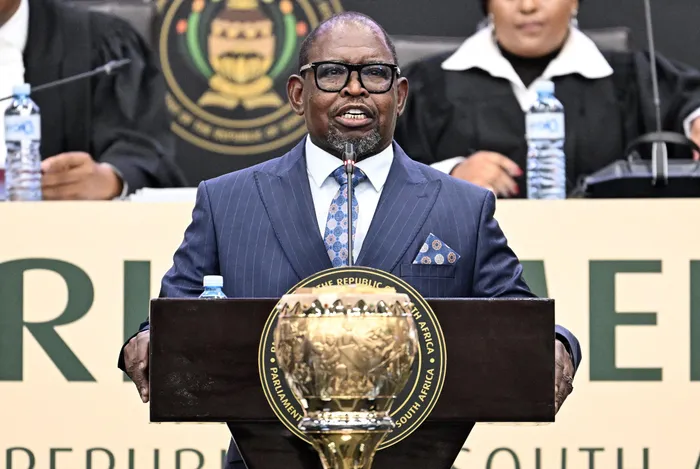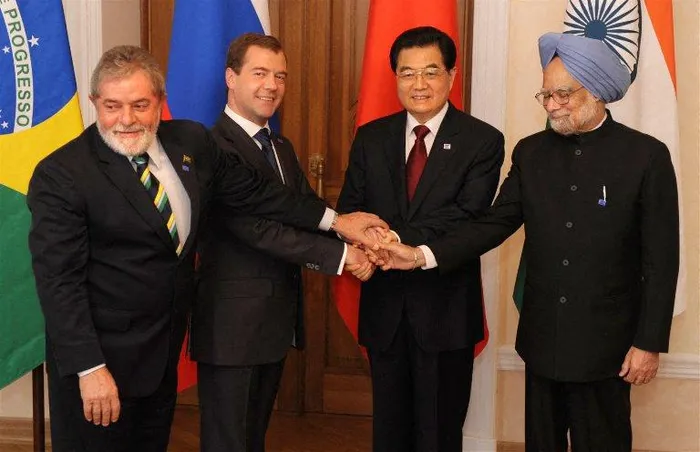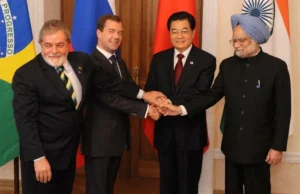Synopsis:Thailand strategically realigned within the shifting global order, joining BRICS+ as a Partner Country in January 2025. As Southeast Asia’s sole never-colonised nation, Thailand leverages ‘Bamboo Diplomacy’ to enhance regional influence, secure alternative development financing, and position itself as a technology and green growth leader in the Indo-Pacific. This strategic shift reflects Thailand’s commitment to multilateralism and signals BRICS’ significant expansion in a dynamic economic region.
Thailand’s Strategic Shift
In a powerful move showcasing the realignment of the world order and power shifts, as of January 2025, Thailand had confirmed membership to the BRICS+ as a Partner Country. The decision was announced and enforced at a time of immense geopolitical and economic shifts, however the relationship between Thailand and the BRICS bloc, and respective members has been growing since 2017, when Thailand joined the BRICS Plus mechanism. Becoming a Partner Country offers an opportunity for the Thai Kingdom to enhance their existing strong regional influence that goes beyond traditional Western-centric alliances and strengthens economic relations with other emerging market nations of high growth potential. The country’s new status in the bloc enables them to participate in meetings that support the BRICS framework collaboration, reinforcing their commitment to multilateralism and to Bamboo Diplomacy.
Bamboo Diplomacy and BRICS Alignment
The concept of Bamboo Diplomacy, which centers around a flexible and pragmatic foreign policy approach aimed at preserving national survival, resilience, flexibility and independence; particularly relevant to Thailand as the only Southeast Asian nation that has never been colonised. The non-aligned traditions are intrinsically linked to the values of BRICS, which promote multilateralism and empowering the global South to have a greater platform for a multipolar world order.
Extending BRICS Influence into Southeast Asia
Thailand, a founding member of the Association of Southeast Asian Nations (ASEAN), shares similar goals with BRICS, focusing on cooperation and integration in political, economic, and socio-cultural areas. By becoming a BRICS Partner Country, Thailand extends BRICS’ influence into Southeast Asia and the Indo-Pacific region, which is strategically vital for maritime routes, economic benefits, and security.
Thailand’s Domestic Political Landscape
The Kingdom, a constitutional monarchy, has avoided the burdens of imperialism. However, its political landscape is marred by a history of coups, protests, and stringent lese-majeste laws. These complexities create an intricate challenge in maintaining equilibrium within the power structure. The necessity of BRICS+ Partner membership is underscored by global uncertainty and economic shocks like inflation and supply chain disruptions from which Thailand suffered greatly in the most recent global crisis, COVID-19. This partnership offers
a means to diversify political and economic South-South integration, with a focus on sovereignty, transparency, non-intervention, and equity.
Economic Pillars and China Collaboration
Bangkok, ranked as the 25th largest global economy, thrives on tourism, manufacturing, digital innovation, and agriculture. The Kingdom attracts millions of tourists, which is hugely beneficial for foreign reserves and substantially contributes to foreign direct investment (FDI). For example, Thailand’s collaboration with China, its largest trading partner, focuses on infrastructure and manufacturing. High-speed railways and Chinese investment are boosting Thailand’s economy.
Financing the Future: The Role of the New Development Bank
The BRICS’ New Development Bank (NDB) offers alternative development financing that comes without the conditionalities often imposed by Western-led institutions, allowing Thailand greater policy space and financial autonomy. Access to this capital not only enhances FDI inflows but also elevates Thailand’s global economic standing, particularly as a gateway between South and East Asia.
A Vision for Innovation and Sustainable Growth
With this increased financial capacity, the Thai government can intensify efforts to modernise its economic structure, focusing on future-oriented sectors such as green technology, renewable energy, digital currencies, e-commerce, and smart infrastructure. These are crucial pillars in Thailand’s long-term development plans, especially as the country navigates the twin challenges of climate change and technological disruption.
In parallel, BRICS cooperation opens the door for technology transfers, joint ventures, and knowledge-sharing among member states—further accelerating Thailand’s transition into a digitally integrated and environmentally sustainable economy. The Kingdom’s existing partnerships with China, India, and Brazil in agricultural innovation, clean energy, and fintech provide a solid foundation for deeper economic synergies within the bloc.
Thailand’s Emerging Role in a Multipolar World
Through sustained BRICS support and collaboration, Thailand is well-positioned to evolve into a leading regional hub for innovation, finance, and logistics, strengthening its role in global value chains. This transformation reinforces Thailand’s embrace of globalisation on its own terms—anchored in sovereignty, economic resilience, and inclusive growth.








